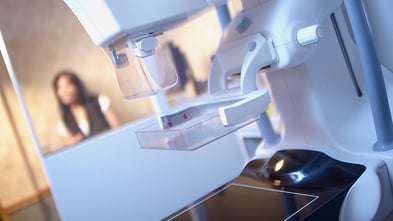 For years, American women experienced disparities in the quality of their healthcare relative to men. Many health issues particular to females — including reproductive health and family planning — were considered taboo in Western culture, especially among people of faith. Many women didn’t seek (or, in some areas, couldn’t get) the care they needed.
For years, American women experienced disparities in the quality of their healthcare relative to men. Many health issues particular to females — including reproductive health and family planning — were considered taboo in Western culture, especially among people of faith. Many women didn’t seek (or, in some areas, couldn’t get) the care they needed.
Over the past few decades, the curtain has been drawn back a bit on women’s health. Inequalities in care delivery are shrinking. Women’s health has become a hot-button topic among healthcare providers and health policymakers as we try to reduce the gender wellness gap.
As one of the premier providers of affordable senior housing and retirement care in Cincinnati, women’s health — particularly, the health of senior women — is of great importance to us.
Today’s article is particularly concerned with the intersection of women’s health and senior health. There are a number of critical screenings recommended for aging women. We’ll list them and discuss why they’re important for senior women in Cincinnati to schedule.
1. Yearly mammograms
Breast cancer is the most common form of cancer in women, regardless of race or ethnicity. To give you an idea about scale, in the United States in 2015, there were nearly 300,000 new diagnoses of breast cancer and over 40,000 deaths from it.
Breast cancer can be very aggressive. If left undetected and untreated, it can quickly spread to other areas of the body. That’s why doctors recommend annual mammograms for middle-aged and senior women.
A mammogram is a special type of x-ray scan that can detect breast tumors. Although they can be uncomfortable for some women, they’re vital for early detection and treatment of growths.
Talk to your doctor and have your annual mammogram scheduled, or visit the Centers for Disease Control and Prevention (CDC)’s National Breast Cancer and Cervical Cancer Early Detection Program webpage, to see if you qualify for a no-cost or subsidized mammogram screening.
2. Genetic testing for BRCA genes
One of the most aggressive forms of breast cancer is associated with the presence of BRCA-1 and BRCA-2 (“BREK-ah”) genes. Many doctors now recommend that women with a significant family history of breast cancer be screened for BRCA genes. If breast cancer runs in your immediate family (mother, grandmothers, sisters), you should ask your doctor if a genetic test BRCA might be appropriate.
3. Pap smears and pelvic exams
Cervical cancer was at one time the leading cause of cancer-related deaths in American women. Much of that stemmed from a lack of preventative care.
One of the biggest risk factors for the development of cervical cancer is now known to be an exposure, at some point in life, to human papilloma virus (HPV) — the virus that can also cause genital warts.
The virus can lay dormant and cause no symptoms for years after exposure, so many older women — even those who are no longer sexually active — don’t know that they remain at risk. But every year, approximately 15% of new cervical diagnoses are made in women over the age of 65.
Pelvic exams and Pap smears are very important for the early detection of cancers in the female reproductive system. They can detect early changes in the tissue of the cervix — changes that could eventually morph into a malignancy.
4. Heart disease screenings
Heart disease is the leading cause of death among American women. And it’s known as a “silent killer.” That’s because heart disease often goes undiagnosed in women.
But 1 in 3 American women die from heart disease or heart-related illnesses. About two-thirds of women who die of heart attacks report no prior symptoms of heart disease. Thus, they don’t get tested for cardiovascular disease — and often don’t know they have a problem until after a heart attack has already occurred.
It’s critically important for older women to be screened for heart attack risk factors like high blood pressure, high cholesterol, obesity or a family history of heart disease. If you consistently have high blood pressure, your doctor may recommend you undergo an EKG and a treadmill-based stress test, both of which can detect heart problems.
5. Blood glucose and HA1C screenings
Diabetes is another leading killer of American seniors — and the obesity epidemic has made it a growing problem. Untreated diabetes can lead to blindness, non-healing wounds that require amputation of limbs, heart disease, multi-system organ failures and, eventually, death.
If you are overweight, you should regularly have your fasting blood glucose and your HA1C level (a telltale chemical signature of Type II diabetes) checked.
6. Bone density scans and serum calcium levels
As women age, their bones commonly become less dense due to the loss of calcium. Menopause can accelerate bone density loss, making the bones light and porous.
This brittle condition — called osteoporosis — puts senior women at serious risk of incurring fall-related injuries like broken hips, broken legs, rib fractures, and back and neck fractures.
Senior women are 4 times more likely than senior men to suffer from osteoporosis of the hip and lower back. Luckily, there are ways to detect osteoporosis and slow the rate of bone density loss. Bone density scans can detect osteoporotic changes. And blood draws can be used to detect low calcium levels in the blood.
Senior women can’t afford to neglect their health
Every older woman should have an established primary care relationship with a doctor. And senior women should see their doctor at least yearly. It’s important for early detection and early treatment of potentially deadly (in some cases, quite preventable) diseases.
And, as a leading provider of retirement care for Cincinnati’s senior women, Episcopal Retirement Services remains committed to helping our residents and community clients get the critical yearly health screenings they need.













